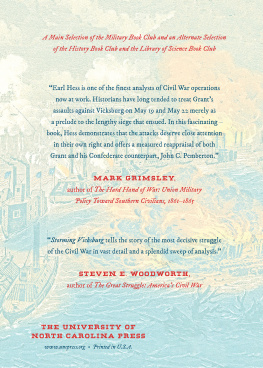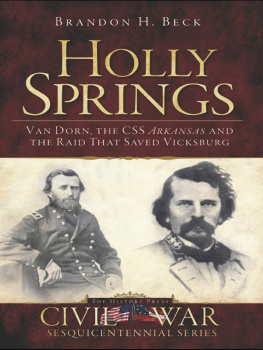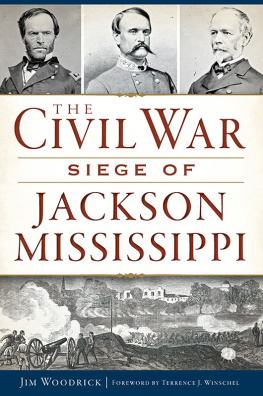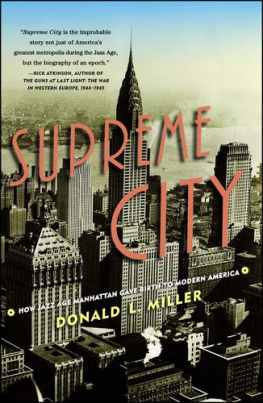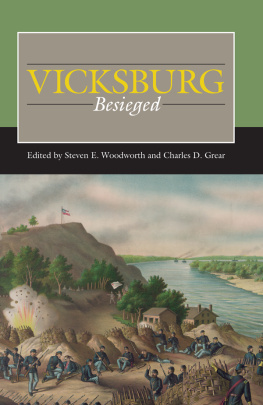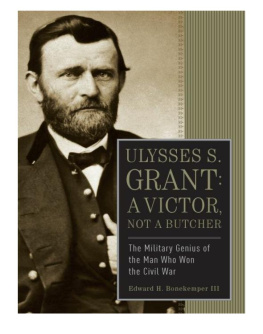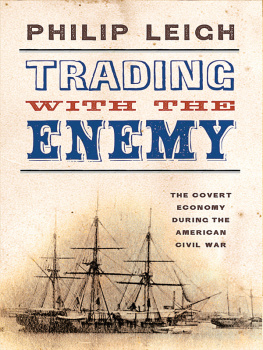David Dixon Porter - Incidents and Anecdotes of the Civil War
Here you can read online David Dixon Porter - Incidents and Anecdotes of the Civil War full text of the book (entire story) in english for free. Download pdf and epub, get meaning, cover and reviews about this ebook. year: 2011, publisher: Barnes & Noble, genre: Adventure. Description of the work, (preface) as well as reviews are available. Best literature library LitArk.com created for fans of good reading and offers a wide selection of genres:
Romance novel
Science fiction
Adventure
Detective
Science
History
Home and family
Prose
Art
Politics
Computer
Non-fiction
Religion
Business
Children
Humor
Choose a favorite category and find really read worthwhile books. Enjoy immersion in the world of imagination, feel the emotions of the characters or learn something new for yourself, make an fascinating discovery.
- Book:Incidents and Anecdotes of the Civil War
- Author:
- Publisher:Barnes & Noble
- Genre:
- Year:2011
- Rating:5 / 5
- Favourites:Add to favourites
- Your mark:
- 100
- 1
- 2
- 3
- 4
- 5
Incidents and Anecdotes of the Civil War: summary, description and annotation
We offer to read an annotation, description, summary or preface (depends on what the author of the book "Incidents and Anecdotes of the Civil War" wrote himself). If you haven't found the necessary information about the book — write in the comments, we will try to find it.
This 1885 memoir details Porters Civil War experiences. He gained renown in 1863 by running his fleet past the Confederate batteries at Vicksburg in support of Grants moves against that city, thus delivering the Mississippi to Union control. He was promoted to admiral in 1870.
Incidents and Anecdotes of the Civil War — read online for free the complete book (whole text) full work
Below is the text of the book, divided by pages. System saving the place of the last page read, allows you to conveniently read the book "Incidents and Anecdotes of the Civil War" online for free, without having to search again every time where you left off. Put a bookmark, and you can go to the page where you finished reading at any time.
Font size:
Interval:
Bookmark:
DAVID D. PORTER

This 2011 edition published by Barnes & Noble, Inc.
All rights reserved. No part of this publication may be reproduced, stored in a retrieval system, or transmitted, in any form or by any means, electronic, mechanical, photocopying, recording, or otherwise, without prior written permission from the publisher.
Barnes & Noble, Inc.
122 Fifth Avenue
New York, NY 10011
ISBN: 978-1-4114-5044-8
CHAPTER I
REJOICINGS IN WASHINGTON AT THE SECESSION OF SOUTH CAROLINA
D URING the Presidency of James Buchanan, and just previous to the inauguration of Mr. Lincoln, I was ordered to the command of the Coast-Survey steamer Active on the Pacific coast.
I could not conceive why I was thus ordered, except that ships and officers were at that period being sent out of the way. This, too, at a time when the Southern States were threatening to secede, and it seemed probable the Government would require the services of all its officers to maintain the integrity of the Union.
At that moment I was in a despondent frame of mind, and troubled with the most gloomy forebodings. I felt that a crisis was impending that might influence all my prospects in life and cast me upon the world without resources and with a large dependent family.
I sought consolation by visiting the houses of Southern members of Congress in Washington whom I knew, but obtained little satisfaction from the sentiments I there heard expressed.
One night in December 1860, on my way home from a visit to Congress, where I had listened to a great deal of incendiary language from Southern members and plenty of vituperation from Northern ones, a gentleman met me in the street and informed me of the secession of South Carolina.
The news, though not unexpected, was startling, and, viewing the matter in the most philosophical light possible, I proceeded homeward to carry the unpleasant intelligence.
On my way I had to pass the house of a distinguished Southern gentleman whom I knew well and for whom I entertained a high regard. I had always heard him discuss the questions at issue between the North and South in the most dispassionate manner, whatever may have been his course in Congress.
There were a dozen carriages standing before the door, and the house was all ablaze with lights, making the interior look cheerful enough, while a drizzling rain rendered everything gloomy without. Those were not the days of well-lighted streets and asphalt pavements. Washington was a city of muddy highways, and corporation moonlight was more frequent than convenient.
As I entered the mansion the lady of the house, in bonnet and shawl, was descending the stairs. She was a magnificent woman, greatly esteemed in Washington society for her genial manner, and admired for her wit and intellect. Had she aspired to do so, this lady might have been the leader of fashion in the Federal capital, but I do not think her ambition ran in that direction. She had a small and select circle of friends, mostly Southern people, and chiefly affected politics.
Her heart was fixed on what she called the emancipation of the South from Northern thralldom, and with her handsome person and dignified bearing she seemed worthy to occupy the loftiest position.
As this lady saw me she exclaimed, "Ah, captain"for so she always called me"I am so glad to see you! I want you to escort me to the White House. The horses are sick, and I am going to walk over."
"It is impossible for you to walk," I replied, "through the rain and mud; but there are ten or twelve hacks at the door, and I will press one of them into your service." So saying, I called a carriage, helped the lady in, and got in after her.
"I was under the impression," I said, as we started, "that you were having a party at your house, seeing it so brilliantly lighted up, and I thought I would venture in uninvited."
"No, indeed," she replied, "but we have received glorious news from the South, and my husband's friends are calling to congratulate him. South Carolina has seceded, and, O captain!" she continued, with increasing fervor, "we will have a glorious monarchy, and you must join us!"
"Yes," I said, "and be made Duke of Benedict Arnold."
"Nonsense!" she exclaimed, "but we will make you an admiral."
"Certainly," I replied, "Admiral of the Blue, for I should feel blue enough to see everything turned upside down, and our boasted liberty and civilization whistled down the wind."
"What would you have?" she inquired. "Would you have us tamely submit to all the indignities the North have put upon us, and place our necks under their feet? Why, this very day my blood fairly boiled while I was in Congress, and I could scarcely contain myself. That old Black Republican, Mr. , was berating the Southern people as if they were a pack of naughty children. However, I was indemnified in the end, for Mr. Rhett took the floor and gave the man such a castigation that he slunk away and was no more heard from. We can stand these outrages no longer, and will take refuge in a monarchya glorious monarchy!"
"Of course you will be queen," I said. "Well, I should be happy to serve under such a beautiful majesty, but somehow I like this homely republicanism under which I have been brought up, and so I will stick to it; but don't repeat to others what you have said to me, for it might compromise your husband."
"Ah," she exclaimed, "he thinks as I do!"
Just then we reached the White House. I helped the lady from the carriage and escorted her into the great hall. I proposed to take my leave, but she insisted on my remaining, saying, "I want to tell the President the good news."
Heavens and earth! thought I, what will happen next? "No, thank you," I said, "I will take some other opportunity to see the President," and, taking my leave of the lady, I went out and never saw her afterward.
I rode back to the house to return the borrowed carriage, and, when I reached the door, heard sounds of merriment issuing from the mansion, and was induced to step into the parlor.
As I entered I was welcomed with boisterous shouts by a dozen gentlemen, only two of whom I had ever met before. They embraced me, and insisted on my drinking with them, but this I declined, thinking there had been too much drinking already.
I can only compare the scene to Pandemonium.
"The people all acted like the jacks at the Nore,
And ran the Palmetto flag up to the fore,
Where all ranted and raved, and their language, O dear!
Was so full of billingsgate 'twas shocking to hear.
Cooney and lawyer, politician and sage,
And the craziest men of the palmetto age,
With defiant looks,
Full of crotchets and crooks,
Were chafing and swearing and scowling so black
As hosts sometimes do when the dinner's put back.
Yet few of the folks at that chivalric fair
Seemed willing to thinknor a curse did they care
That a sword hung over them just by a hair.
Old Clootie was there, and said all was right;
'Twas he held the bottle, and urged on the fight,
And stood up in his place,
With his stoical face,
His hands meekly folded, as if he'd say grace,
While Rebellion was moving at an awful fast pace."
The only person who seemed to preserve his equanimity was the master of the house, who sat, calm and smiling, conversing with an uproarious friend who had partaken deeply of the flowing bowl.
When I had an opportunity I asked the host quietly if there was anything in this excitement, and if it could be possible that the Southern States would secede. "What more do they want?" I inquired. "They have a majority in the Senate and in the House, and, with the Supreme Court on their side, they can make laws to suit themselves."
Font size:
Interval:
Bookmark:
Similar books «Incidents and Anecdotes of the Civil War»
Look at similar books to Incidents and Anecdotes of the Civil War. We have selected literature similar in name and meaning in the hope of providing readers with more options to find new, interesting, not yet read works.
Discussion, reviews of the book Incidents and Anecdotes of the Civil War and just readers' own opinions. Leave your comments, write what you think about the work, its meaning or the main characters. Specify what exactly you liked and what you didn't like, and why you think so.



